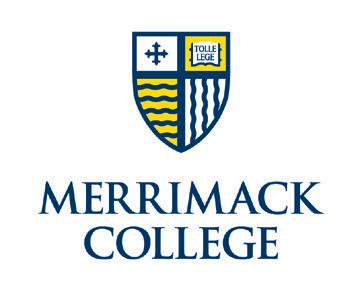COMMUNITY HEALTH EDUCATION
www.merrimack.edu/che

DEADLINES
Fellowships
Rolling Deadline:
Applications for 2023-2024 will be reviewed until all spots are filled.
Begins: May 22, 2023
Summer I 2023
Application Deadline:
May 8, 2023 (April 10, 2023 for international applicants)
Begins: May 22, 2023
Summer II 2023
Application Deadline:
June 26, 2023 (May 26, 2023 for international applicants)
Begins: July 10, 2023
Fall 2023
Application Deadline:
August 14, 2023 (July 14th, 2023 for international students)
Begins: August 2023
Spring 2024
Application Deadline:
January 2024 (Exact Dates TBA)
Begins: January 2024
Help individuals, families and whole communities live healthier lives. There are few things in life that are as important as our health. To prepare you to make a significant impact on people in your community and around the world, Merrimack’s Master of Science in Community Health Education offers you the resources, tools, and hands-on training to encourage healthy lifestyles. By studying current population health issues and evidence-based professional practices, you’ll learn how to identify community health challenges—and work to solve them.
Tailored For You
• All classes can now be taken online! Choose from online or campus/ hybrid courses, depending on which works best for you
• Complete in just 9 months full-time, or study part-time at your own pace
• One-year, full-time Fellowships offer field experience and 50-100% off tuition

• Enjoy personalized support in small classes with committed faculty
• Automatic scholarship consideration
• No application fee or GRE/GMAT required
GRADUATE FELLOWSHIPS
Earn your Master of Science in one year —Save 50-100% on tuition
This fellowship links graduate study with onsite field experience to help build your professional skills. Learn more at www.merrimack.edu/hsfellowships.
TUITION AND SCHOLARSHIPS
$1,028 per credit hour*
The M.S. in Community Health Education is 32 credit hours ($32,896)
Applicants for full and part-time study (excluding fellowships) are eligible for the Dean Scholarship, which is awarded based on merit and need. This generous scholarship, in addition to our already low tuition, can help you save significantly on tuition costs.
*2022–2023 tuition. Rates subject to change.
“In the Community Health Education program at Merrimack College I was introduced to the research surrounding ongoing health policy and disease issues while simultaneously learning effective strategies to promote wellness and educate the population to optimize community outcomes. Between the knowledgeable and professional staff to the tight-knit group of students I was with from start to finish, I was able to strive on a personal, academic, professional, and interpersonal level.”
NICHOLAS PARIANOS, M.S. '22Admission Requirements
Professional experience or a bachelors' degree from an accredited institution in a health-related field (such as public health, health education/health promotion, exercise science/kinesiology, or human nutrition), or a bachelor's degree in another field plus professional experience in a health-related field, is required.
If you have experience or a degree in a science field, but one that is not considered a direct healthcare profession (e.g., biology, biomedical sciences, etc.), or you have a non-science degree in a field such as health communications, healthcare administration, psychology/ sociology, human development, education, or other field, you may be required to take an additional undergraduate course prior to enrolling or while concurrently taking courses in the graduate program, as follows:
One approved public health, health education/promotion, or related course with a grade of B or better.
High-Impact Careers in Community Health Education

Graduates of Merrimack’s Community Health Education master’s degree program are aggressively recruited, and they have a stellar track record of job placement and professional achievement with prestigious organizations such as Boston Children’s Hospital and the Boston Public Health Commission.
The master’s degree in Community Health Education supports a diverse array of career pathways. Demographic changes, health care reforms, and other factors have created rising demand for community health educators. You can work in specialized niches such as: nutrition, fitness, mental health, sports and recreation, addiction, disease prevention, sexual health, K-12 health education and more.
Sampling of Courses
HSC 5360: Health Promotion Programs
HSC 6500: Public Health Policy and Management
Program information subject to change. Visit the website for up-to-date program information.
CME 6500: Community Organizing and Development
HSC 6875: Health Sciences Organizational Leadership
